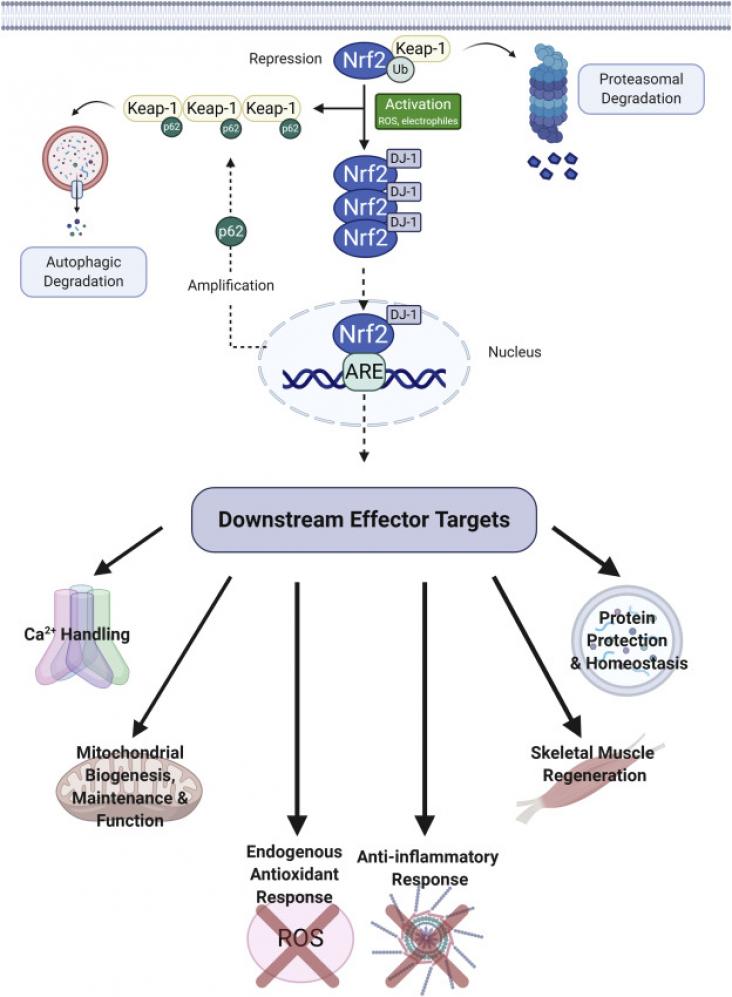
Imbalances in redox homeostasis can result in oxidative stress, which is implicated in various pathological conditions including the fatal neuromuscular disease Duchenne Muscular Dystrophy (DMD). DMD is a complicated disease, with many druggable targets at the cellular and molecular level including calcium-mediated muscle degeneration; mitochondrial dysfunction; oxidative stress; inflammation; insufficient muscle regeneration and dysregulated protein and organelle maintenance. Previous investigative therapeutics tended to isolate and focus on just one of these targets and, consequently, therapeutic activity has been limited. Nuclear erythroid 2-related factor 2 (Nrf2) is a transcription factor that upregulates many cytoprotective gene products in response to oxidants and other toxic stressors. Unlike other strategies, targeted Nrf2 activation has the potential to simultaneously modulate separate pathological features of DMD to amplify therapeutic benefits. Here, we review the literature providing theoretical context for targeting Nrf2 as a disease modifying treatment against DMD.
The use of smart conversational agents for the detection of neuropsychiatric disorders is an emerging and promising field of research using AI.
This book chapter advances SDG 3 by explaining how advances in technology and research methodology now permit us to assign more certainty to the magnitude of genetic susceptibility.
Research on the relationship between vegetarianism and subjective well-being (SWB) has produced inconsistent results, which may partly be due to small sample sizes and divergent operationalizations of
In this paper, we conducted a narrative review to describe age-specific characteristics that inform how children and adolescents interact with their food systems and how that relationship influences t
This paper provides an overview of nutrition recommendations for dietary intakes necessary to support normal growth and development of children from birth to 18 years and to promote long-term health a
Current food systems are failing to guide children towards healthy diets.

Intervening in the food environment is critical to improve the diets and nutrition of children and adolescents.
This paper focuses on the most proximate determinants of dietary intake: food behaviors of caregivers, children and adolescents.
